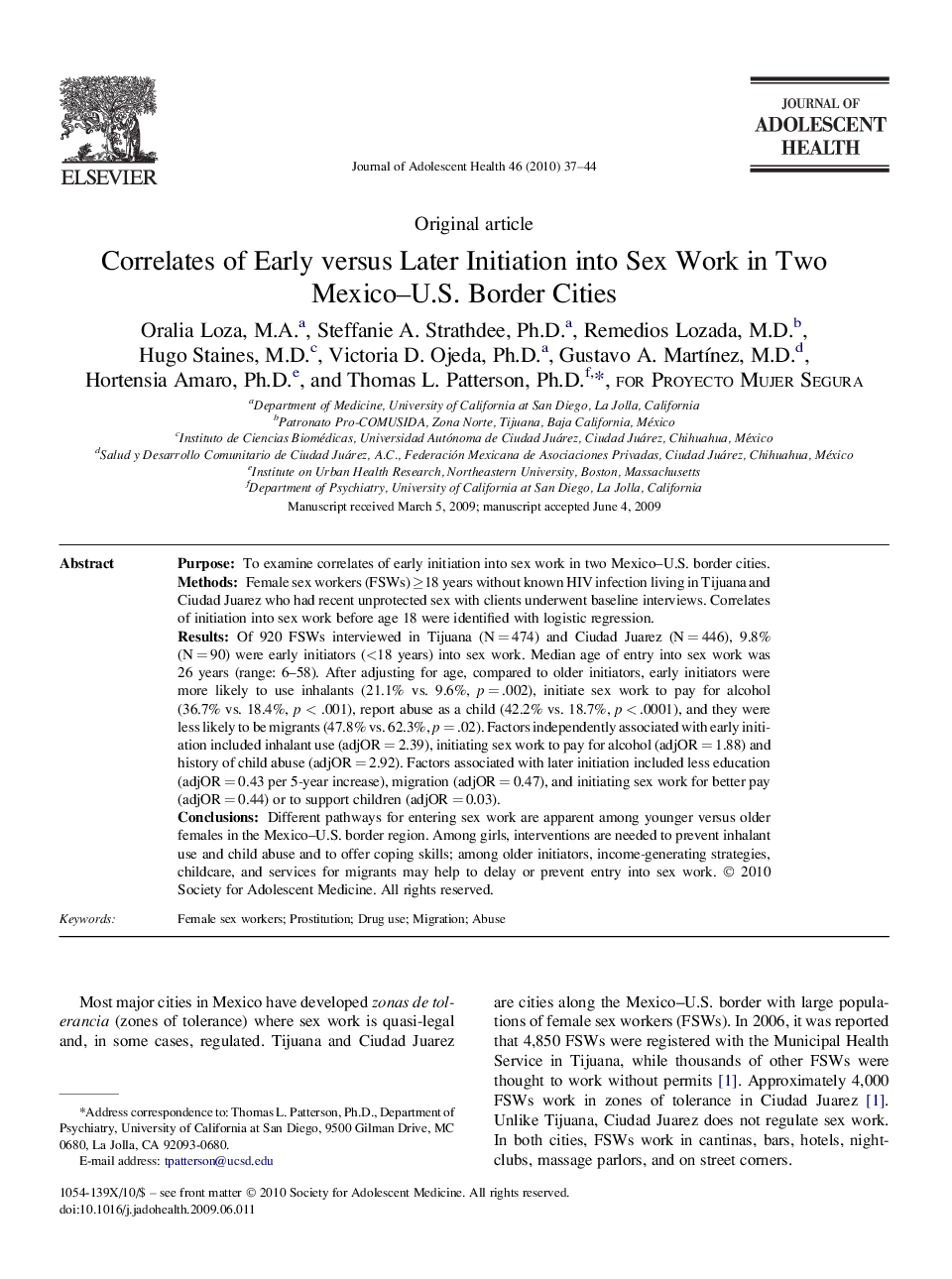| Article ID | Journal | Published Year | Pages | File Type |
|---|---|---|---|---|
| 1080095 | Journal of Adolescent Health | 2010 | 8 Pages |
PurposeTo examine correlates of early initiation into sex work in two Mexico–U.S. border cities.MethodsFemale sex workers (FSWs) ≥18 years without known HIV infection living in Tijuana and Ciudad Juarez who had recent unprotected sex with clients underwent baseline interviews. Correlates of initiation into sex work before age 18 were identified with logistic regression.ResultsOf 920 FSWs interviewed in Tijuana (N = 474) and Ciudad Juarez (N = 446), 9.8% (N = 90) were early initiators (<18 years) into sex work. Median age of entry into sex work was 26 years (range: 6–58). After adjusting for age, compared to older initiators, early initiators were more likely to use inhalants (21.1% vs. 9.6%, p = .002), initiate sex work to pay for alcohol (36.7% vs. 18.4%, p < .001), report abuse as a child (42.2% vs. 18.7%, p < .0001), and they were less likely to be migrants (47.8% vs. 62.3%, p = .02). Factors independently associated with early initiation included inhalant use (adjOR = 2.39), initiating sex work to pay for alcohol (adjOR = 1.88) and history of child abuse (adjOR = 2.92). Factors associated with later initiation included less education (adjOR = 0.43 per 5-year increase), migration (adjOR = 0.47), and initiating sex work for better pay (adjOR = 0.44) or to support children (adjOR = 0.03).ConclusionsDifferent pathways for entering sex work are apparent among younger versus older females in the Mexico–U.S. border region. Among girls, interventions are needed to prevent inhalant use and child abuse and to offer coping skills; among older initiators, income-generating strategies, childcare, and services for migrants may help to delay or prevent entry into sex work.
